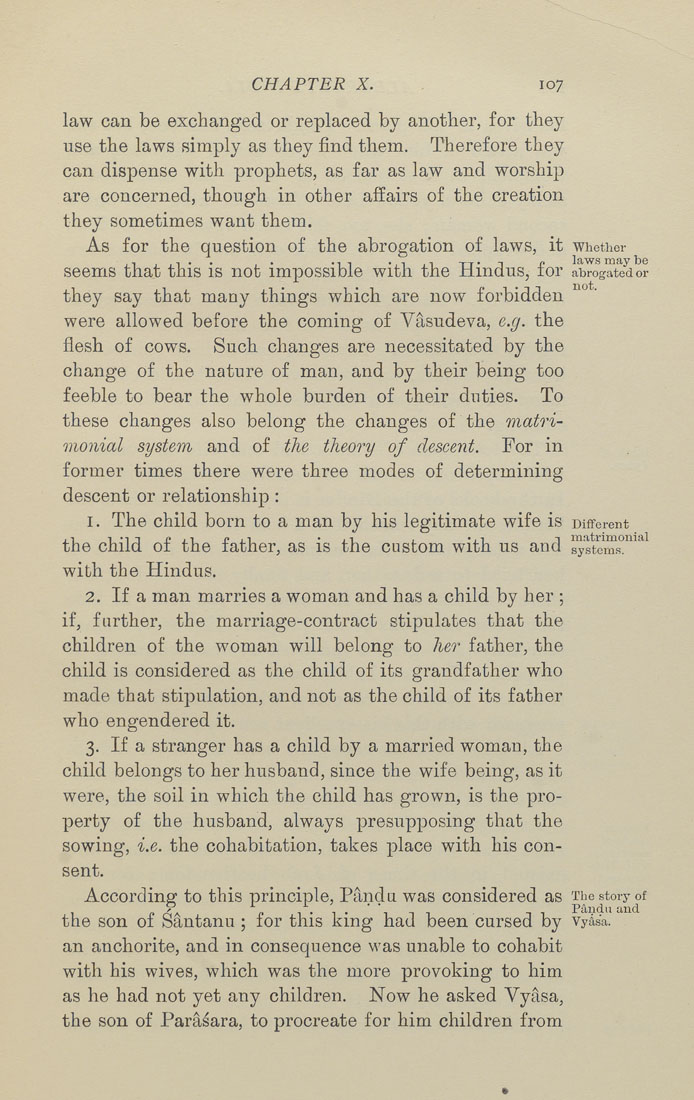Bīrūnī, Muḥammad ibn Aḥmad, Alberuni's India (v. 1)
(London : Kegan Paul, Trench, Trübner & Co., 1910.)
|
||
|
|
|
|
| Page 107 |

CHAPTER X. 107 law can be exchanged or replaced by another, for they use the laws simply as they find them. Therefore they can dispense with prophets, as far as law and worship are concerned, though in other affairs of the creation they sometimes want them. As for the question of the abrogation of laws, it whether seems that this is not impossible with the Hindus, for abrogated or they say that many things which are now forbidden were allowed before the coming of Vasudeva, e.g. the flesh of cows. Such changes are necessitated by the change of the nature of man, and by their being too feeble to bear the whole burden of their duties. To these changes also belong the changes of the matri¬ monial system and of the theory of descent. For in former times there were three modes of determining descent or relationship : 1. The child born to a man by his legitimate wife is Different the child of the father, as is the custom with us and systc™s°"''* with the Hindus. 2. If a man marries a woman and has a child by her ; if, further, the marriage-contract stipulates that the children of the woman will belong to her father, the child is considered as the child of its grandfather who made that stipulation, and not as the child of its father who engendered it. 3. If a stranger has a child by a married woman, the child belongs to her husband, since the wife being, as it were, the soil in which the child has grown, is the pro¬ perty of the husband, always presupposing that the sowing, i.e. the cohabitation, takes place with his con¬ sent. According to this principle, Pandu was considered as The story of f?A c i-i''"i-ii -II Panda and the son ot Santanu ; tor this king had been cursed by vyasa. an anchorite, and in consequence was unable to cohabit with his wives, which was the more provoking to him as he had not yet any children. Now he asked Vyasa, the son of Parasara, to procreate for him children from |
| Page 107 |







